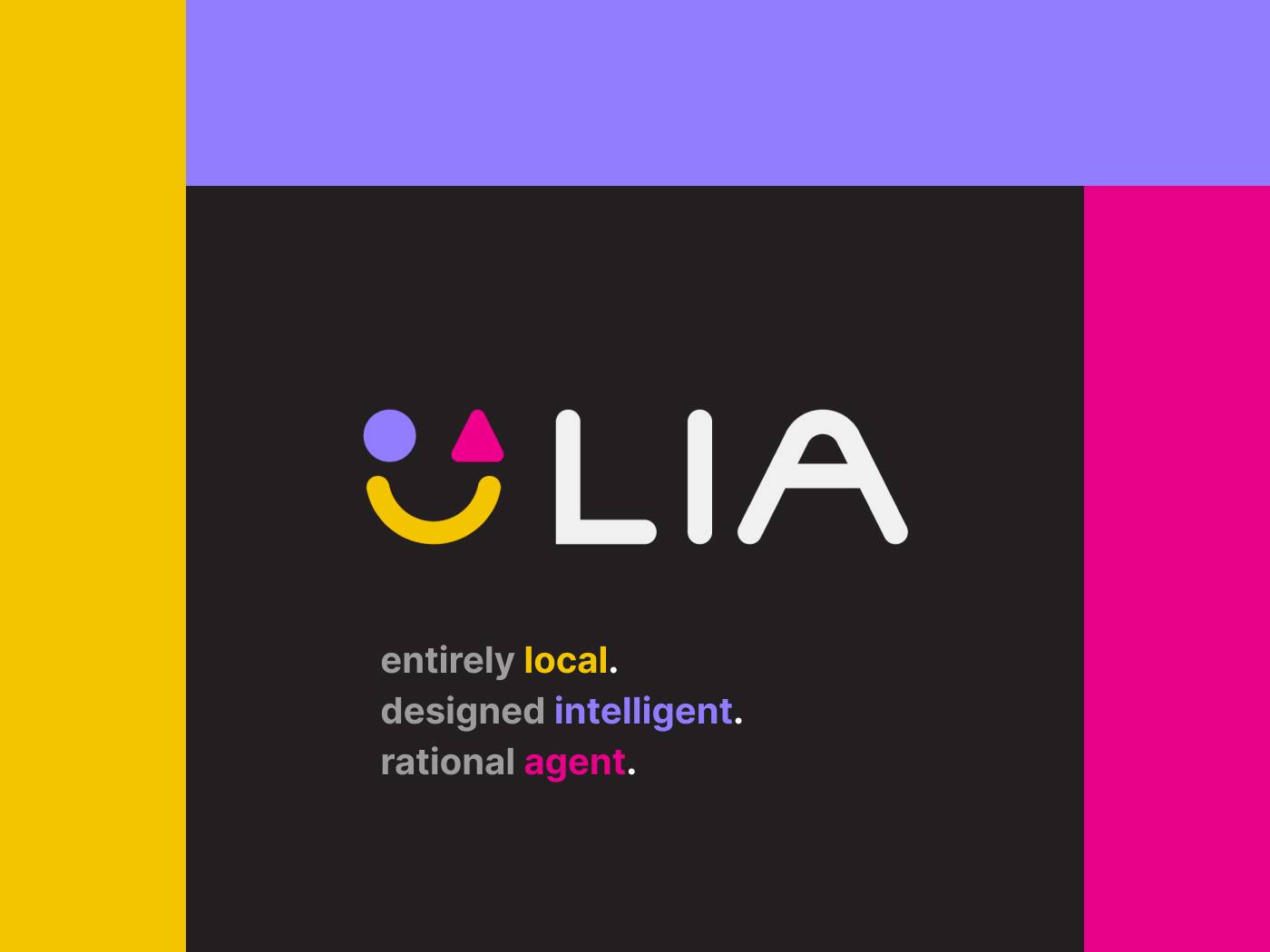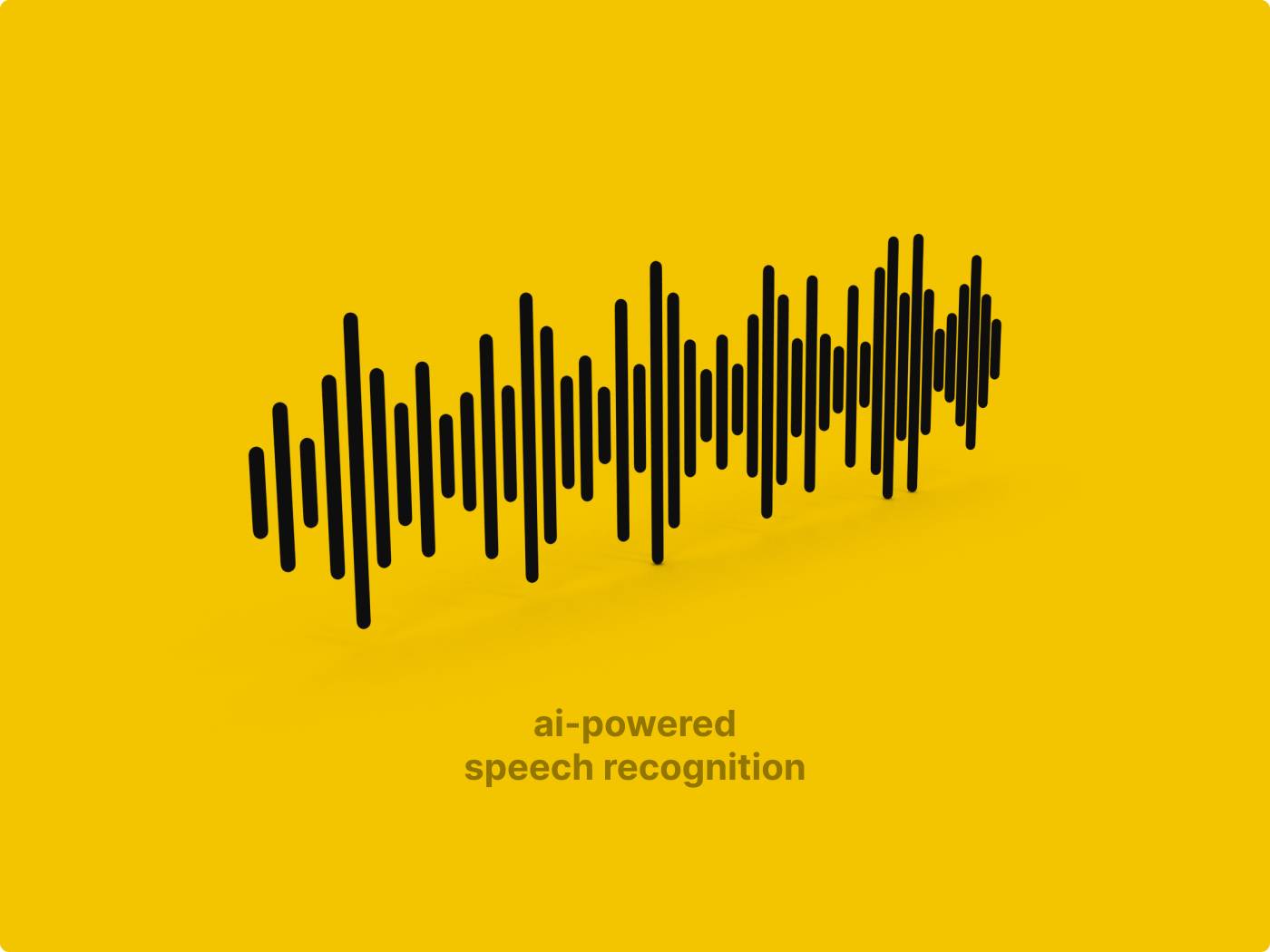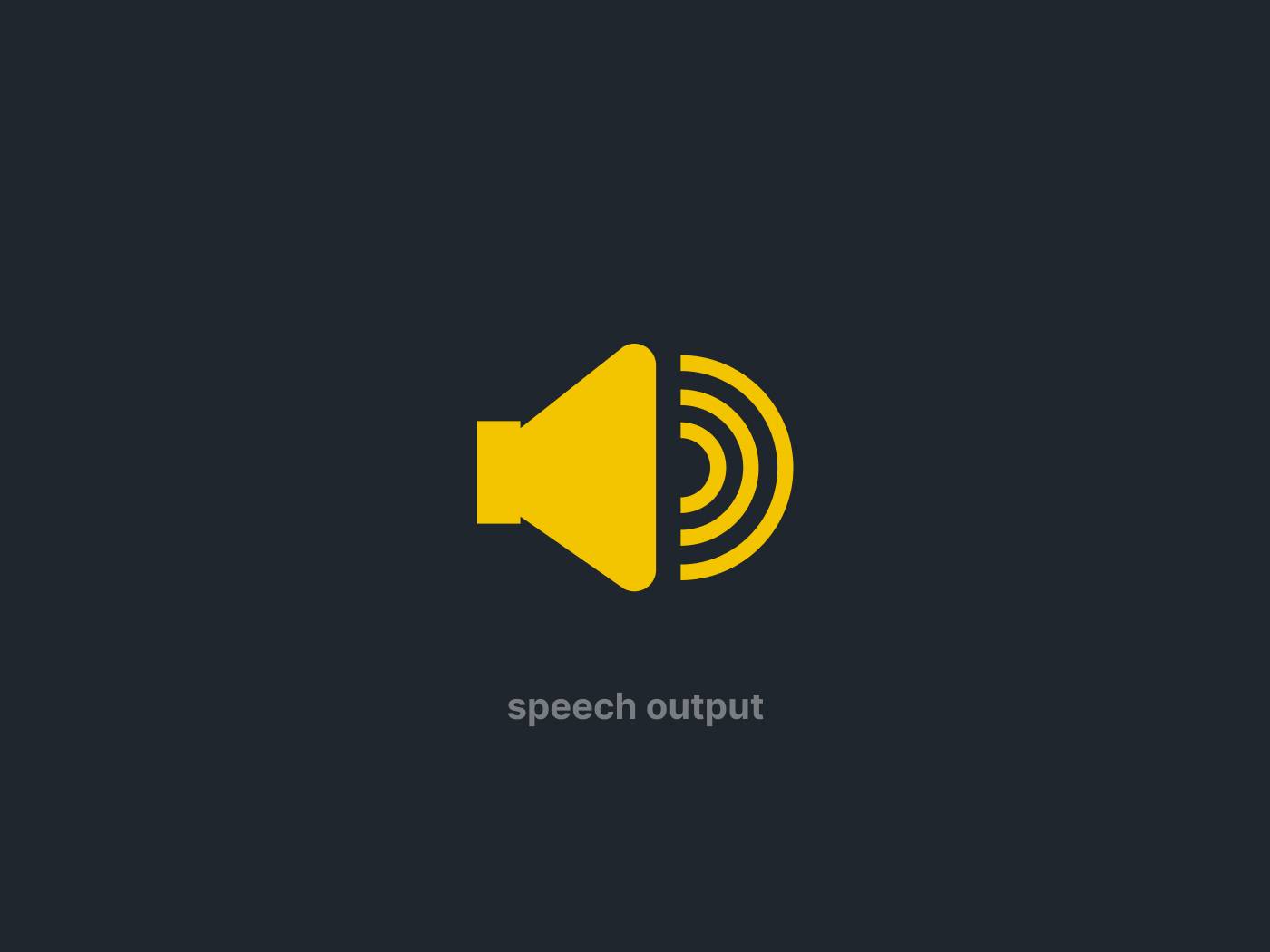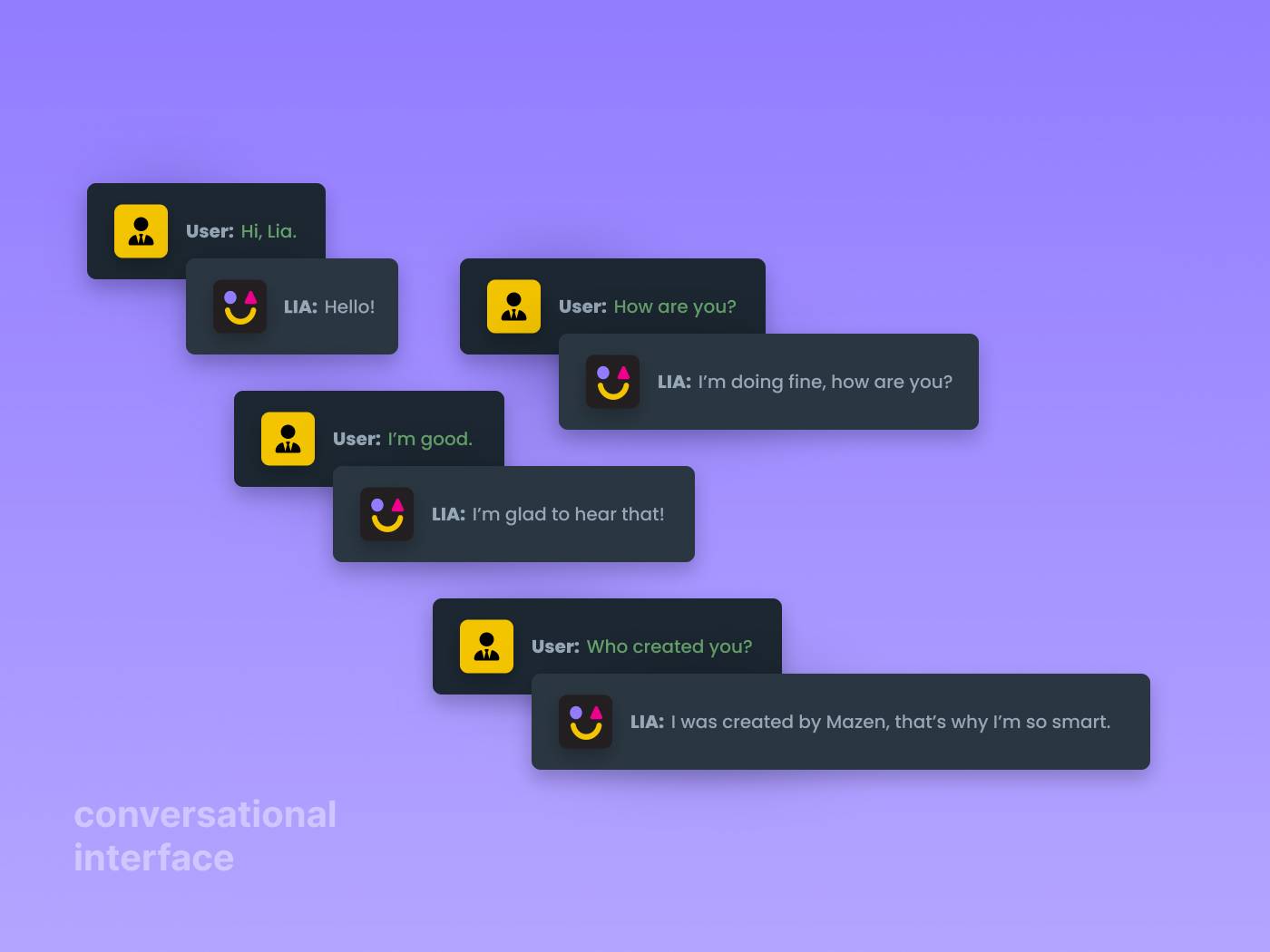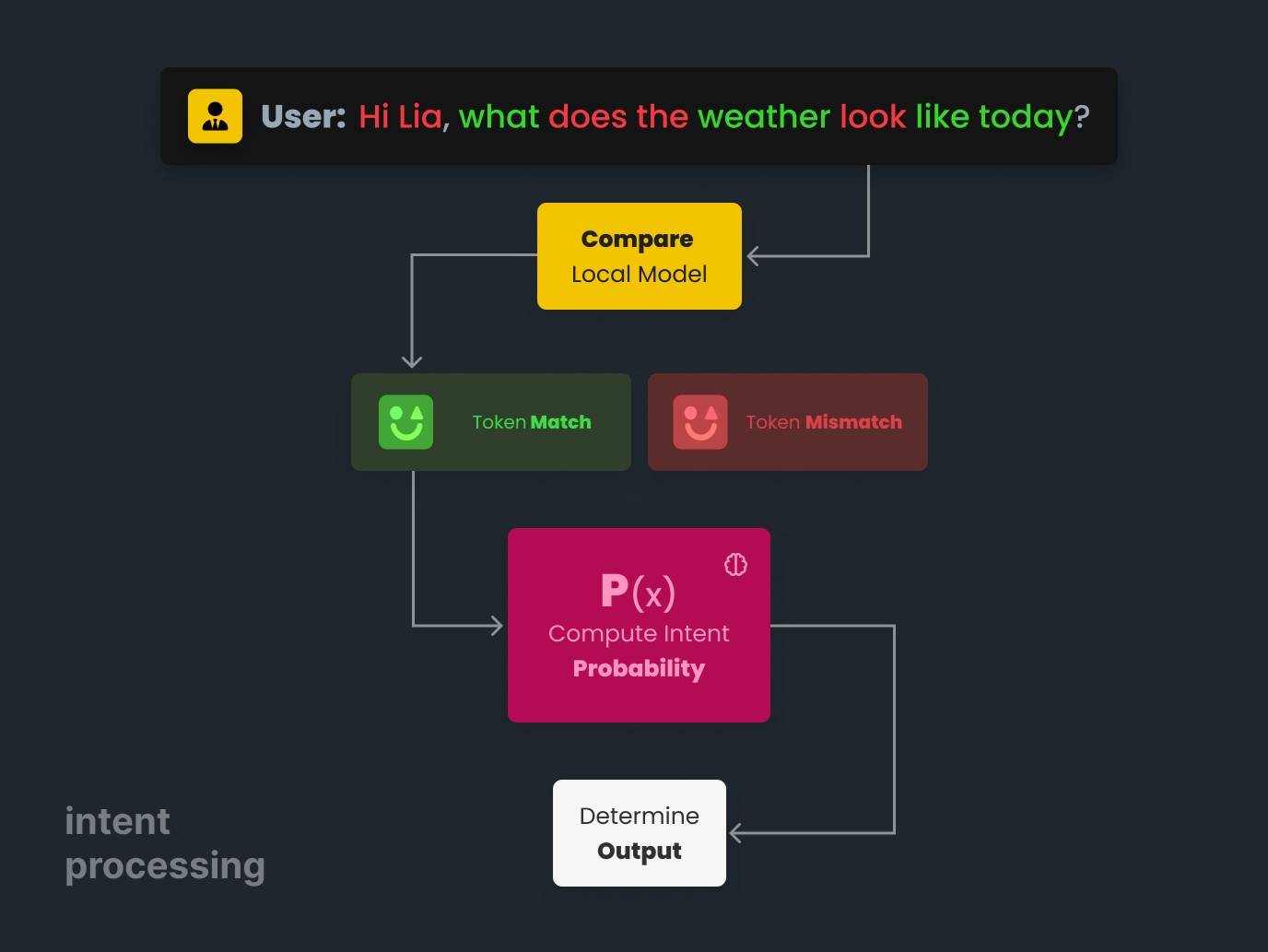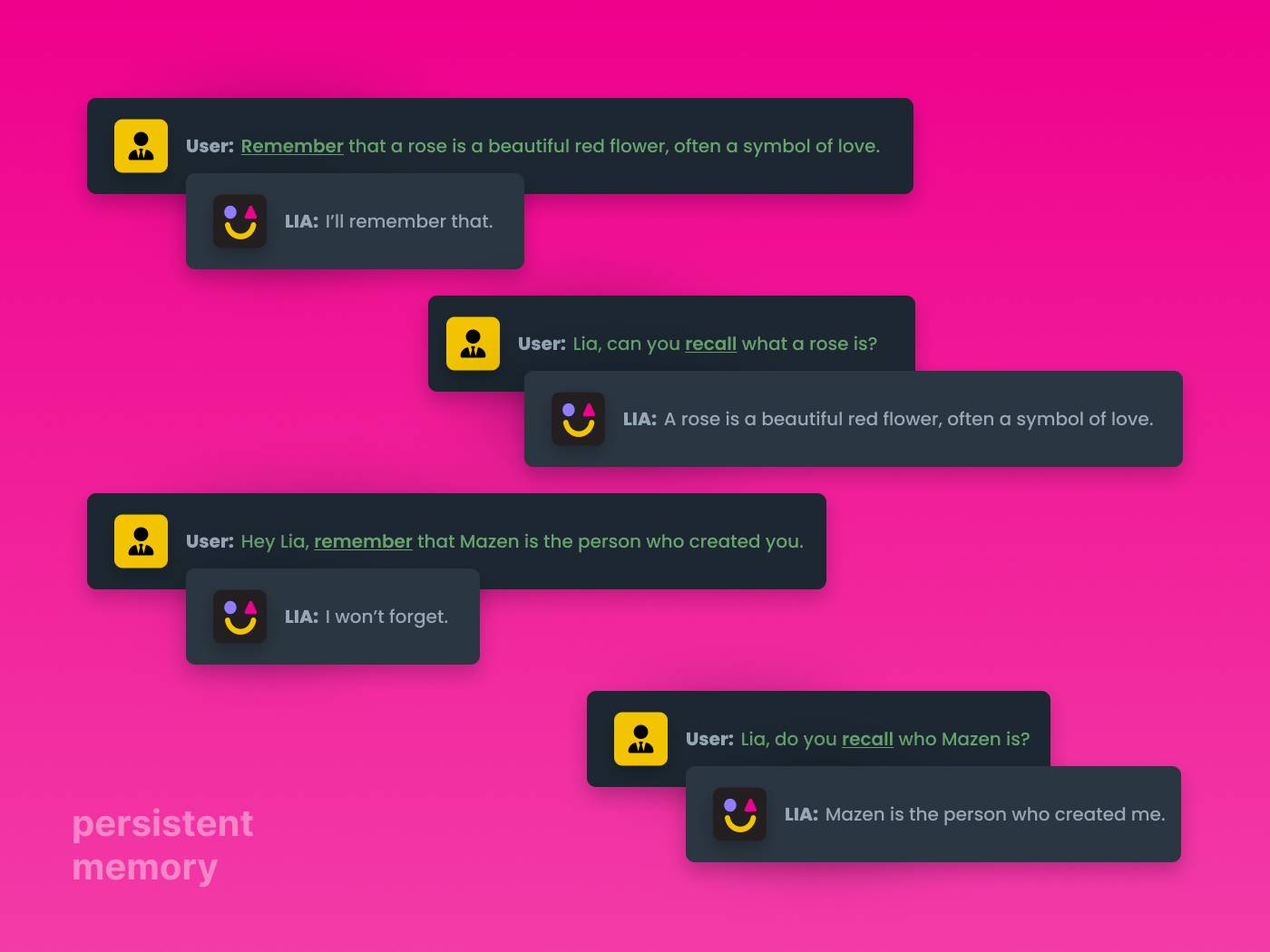LIA
LIA is a privacy-respecting intelligent assistant designed to run entirely on a local device. It uses natural language processing and intent recognition to interpret user input and provide helpful responses—all without sending data to the cloud.
Industry
Virtual Assistance
Stack
Python
CSV
LIA, short for Local Intelligent Agent, was built with privacy in mind. In a world where data harvesting is the norm, LIA processes everything locally—nothing leaves your device. It’s a personal digital assistant you can trust.
Speech recognition and voice output
LIA listens for the activation phrase containing 'LIA' (pronounced lee-yah) to begin processing voice input using locally-run AI voice recognition. Performance depends on your device specs and model size; even a lightweight 270MB model runs smoothly on mid-range machines.
LIA can also respond out loud using local text-to-speech processing, offering a complete hands-free assistant experience.
Conversation API
LIA includes an API that accepts plain text input and returns generated responses. This enables chat interfaces and other integrations to communicate with the assistant programmatically.
Natural language understanding
At the heart of LIA is a natural language processing engine that interprets everyday language and extracts meaning through intent recognition. Each user command is mapped to an intent using probability calculations based on an internal conversation model, which can be expanded for better accuracy over time.
Memory: who, what, where?
LIA supports basic memory functions, allowing users to teach it who someone is, what something is, or where something is. This information is saved between sessions and can be recalled at any time—or forgotten on command.


